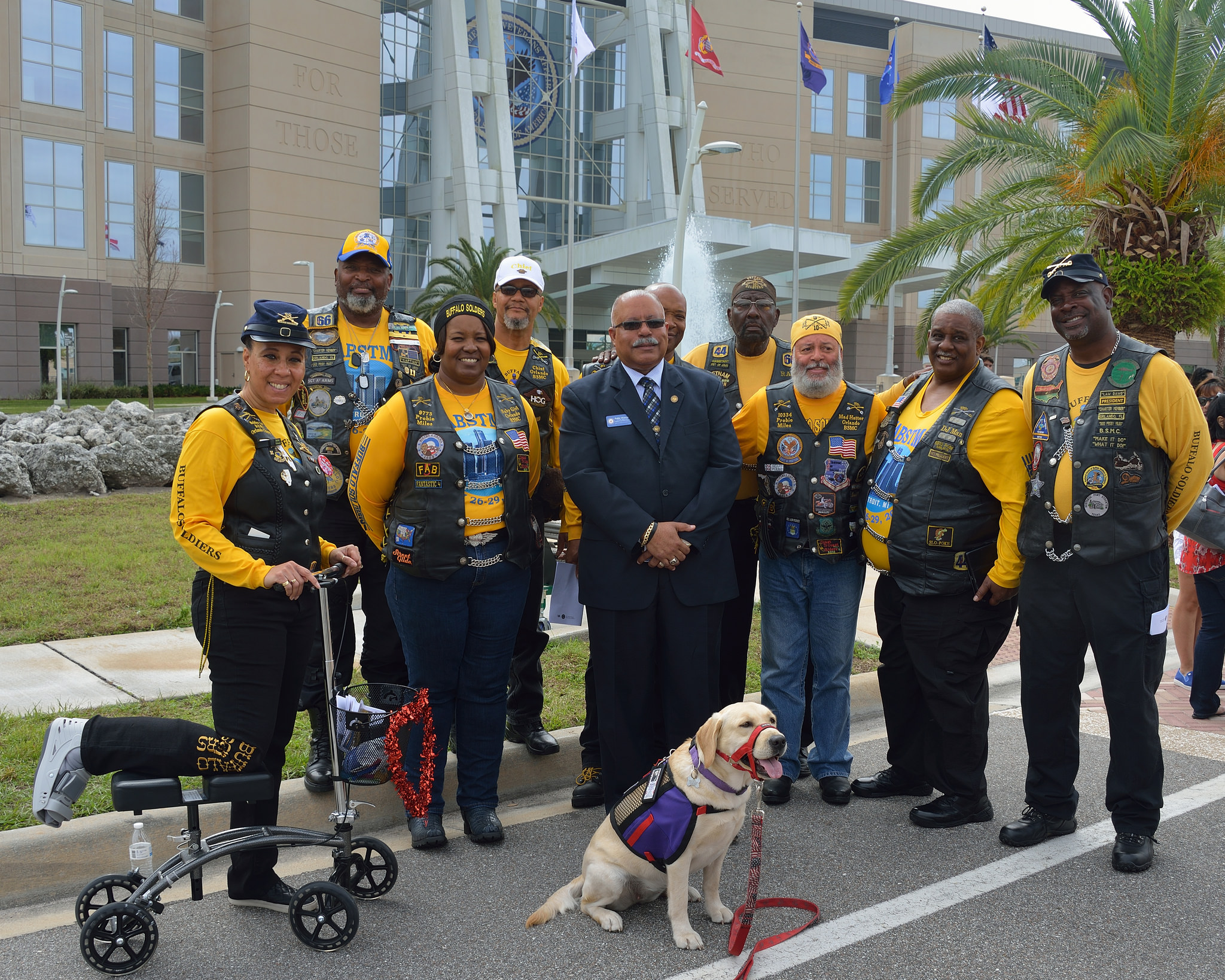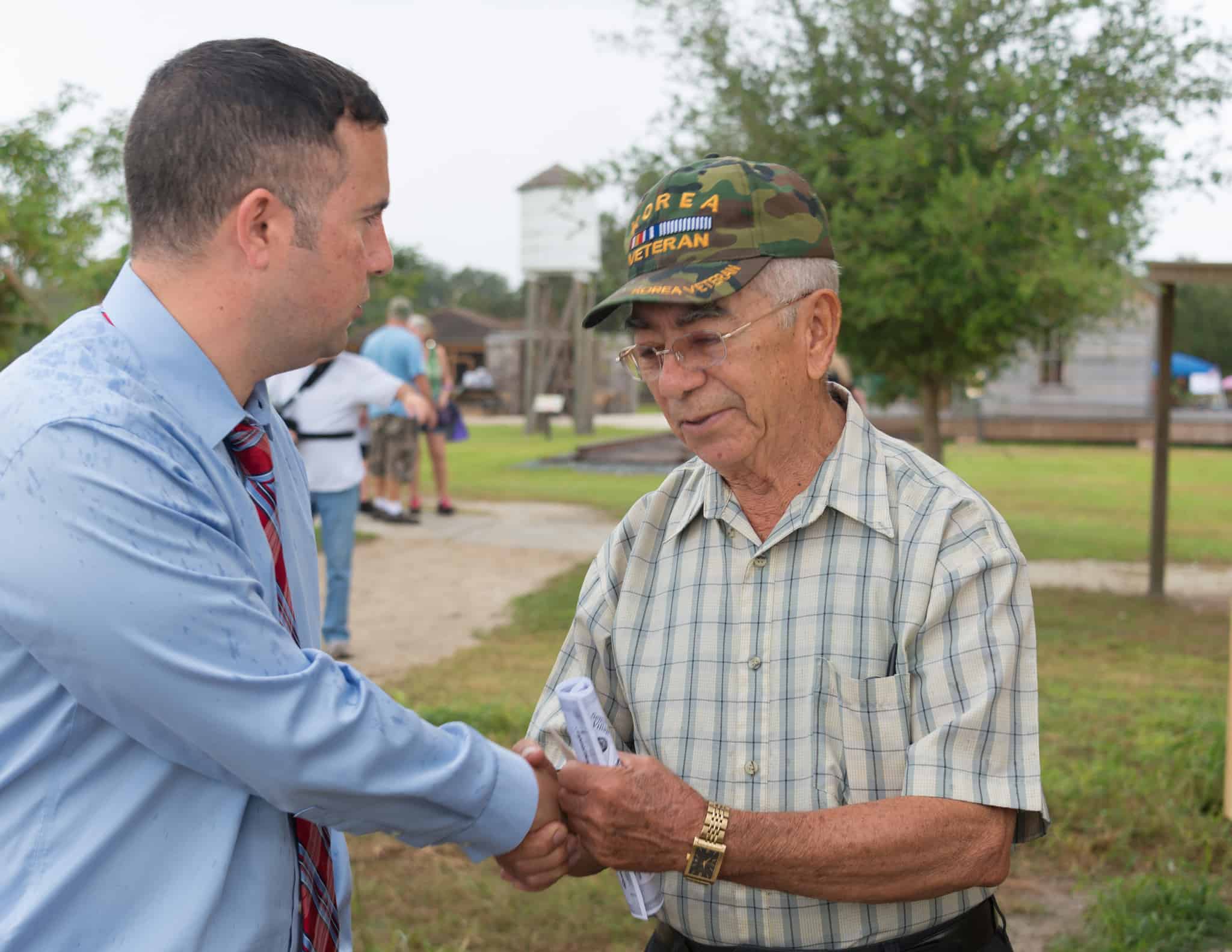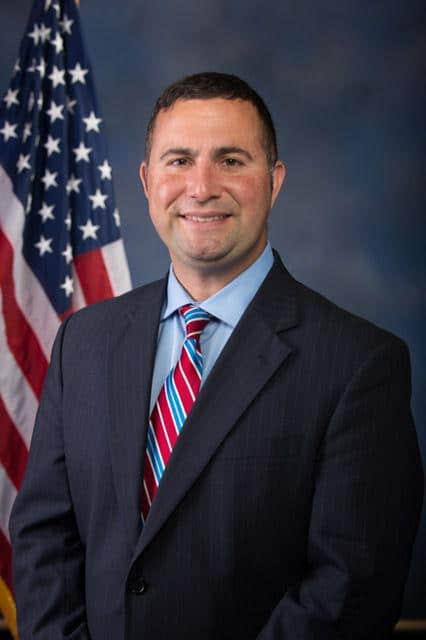
Congressman Darren Soto’s previous Congressional District office was located at the UCF Medical School Administration Building in Lake Nona, and although it was just across the street from the VA Medical Center, it was yet another hurdle for veterans in need to cross in order to get help. Most were unwilling due to a myriad of understandable reasons. Now that the office is located within the VA Medical Center, an interview with Congressman Soto (D-FL-09) gives us an inside look at how it has helped countless veterans get the help they deserve.
Q: Was the process easy for you to get approval to set up inside the VA Medical Center? What were some of the obstacles you faced?
A: The House Administration office only meets about this subject twice a year. So, we rushed to get this approved during the last meeting a few months ago. Unfortunately, the VA was worried that it would get political, but these are official government offices – they are not political offices. So, the agreement was that we would have to shut down 60 days before the elections under the Hatch Act and reopen the day after the elections. Which was fine by us – we are willing to abide by any rules required because it is absolutely critical to have a seamless process to serve our veterans. Otherwise, many of them will lose because they have developed a distrust of government through their experience in the military, and we have to overcome that in order to help them.
Q: What are some veteran issues that your office deals with?
A: [There are] multiple: not getting timely care, or if they are not being qualified for benefits they are entitled to, or if they had a bad experience. They could be homeless or have a drug problem or even looking for work. PTSD is [also] a huge issue; these veterans have experienced things that the civilian population couldn’t fathom, so that creates all sorts of stresses. Having a one-stop shop where we can help out has been absolutely critical.
Q: What are the gaps you fill in to make the process better?
A: It is so critical not to have any gaps in the services we provide to our veterans. Even being across the street, some people who have severe PTSD found it tough to take any extra steps in their condition. People call us from the VA upset and some have psychological issues, and we couldn’t get them to cross the parking lot. The geographical change has helped fill any gaps for our veterans who represent more than half of our cases. We are all about process and like to see every case to the very end – whether it works out or not, we know we did our best.
Q: How has your staff been received at the VA hospital when they get involved in a case?
A: We were welcomed both by the director, Timothy W. Liezert, and with the professional staff there. We view ourselves as partners of theirs; we work out problems together. We don’t view ourselves as being in an adversarial position with them. Sometimes, it’s just about getting them the resources they need to get things done in a timely fashion.

Q: Do you take all the cases that come to you? What are the criteria?
A: We have between 400 to 500 cases at a given time, and we clear about 10% of those a week. They are all sorts of federal issues, so that defines the jurisdiction of what we get involved in. Anything related to veterans is a federal issue. We also deal with Social Security, Medicare, certain immigration cases (like political asylum), persons with disabilities, [and] civil rights matters. Other things that are on a state level, like Medicaid or K-12 education, and most criminal laws, the state deals with.
Q: Is there anything that can be done on a federal level to make it easier for veterans to deal with medical or non-medical issues?
A: We have some reforms that recently passed that cracked down on the abuse at other VA hospitals. Some management staff were presenting false numbers of the people they were serving and their satisfaction surveys, etc. We also now have the Choice Act, which after 60 days, if a veteran still doesn’t get an appointment, they can get transferred to a private health practitioner. Although we urge everyone to try a VA medical center first because those doctors are familiar with the conditions that affect our military, conditions that are often misdiagnosed by private physicians. A lot of it is just funding – a lot of the wait time is due to insufficient funding, and that is an issue that I will continue to be fighting for.
Q: Is there a unique case that you have had success in that you would like to share?
A: There were a couple. One that sticks out in my mind is about a gentleman who heard one of our ads at a time that he was contemplating suicide. He decided not to do that on the hope that we could help him and decided to talk to Pablo (Veteran Affairs & Military Field Representative). We were able to let him know that we cared and understood that he served our country and could help him. He is now getting the treatment he needs, and I recently recognized him with the 50th anniversary Vietnam veteran pin in an emotional ceremony where he mentioned to me that our office had saved his life.
Q: What are the resources that are available and how do you help veterans with them?
A: There are resources for veterans that are not available for the general public. Like funding for higher education, free healthcare at the VA hospitals and clinics, a rental stipend for those who are homeless, work skills and training other than higher education, SBA loans, contract preferences for veteran-owned businesses. We work with veterans throughout the entire process.
Q: What are some restaurants you have enjoyed in Lake Nona?
A: There are many great restaurants in Lake Nona. You can catch Mrs. Soto and I at the Lake Nona Town Center enjoying dinner at Bosphorus or Chroma.

To contact the Congressional District Office inside the VA Medical Center, call
407-452-1171 or you can reach Pablo Alvarado, Jr., Veteran Affairs & Military Field Representative, directly at 202-322-4476.
The new office address is:
13800 Veterans Way, Suite 1F806
Orlando, FL 32827

